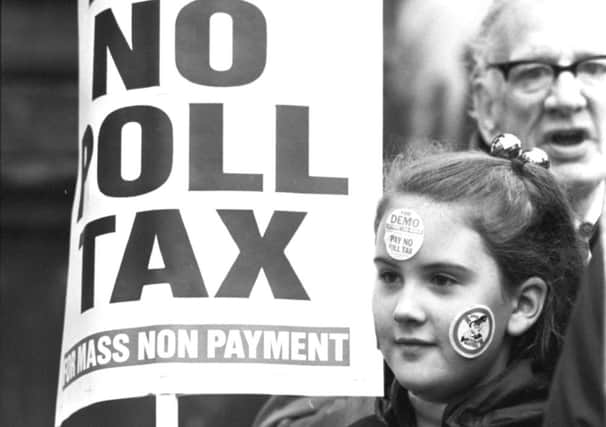Date set for end of poll tax debts


The Community Charge Debt (Scotland) Bill seeks to block councils pursuing people for the tax.
Legislation was brought forward to stop the practice after several local authorities said they would use the details of people who registered to vote in September’s independence referendum to recover outstanding cash from the controversial charge.
CONNECT WITH THE SCOTSMAN
Advertisement
Hide AdAdvertisement
Hide Ad• Subscribe to our daily newsletter (requires registration) and get the latest news, sport and business headlines delivered to your inbox every morning
The poll tax, officially called the Community Charge, was introduced in Scotland in 1989 by Margaret Thatcher’s Government but abolished in 1993 after only four years in operation.
The amount of arrears collected by councils across Scotland fell to £327,000 in 2013-14 and some local authorities have already ceased recovery of the debts.
The Scottish Government said it will cover the cost to councils of the debt that they would have expected to recover under existing arrangements, estimated to be £869,000.
Deputy First Minister John Swinney said: “The poll tax was a hated levy which caused misery in hard-working communities across Scotland and which was widely discredited as an unworkable tax, opposed across all sections of Scottish society.
“It is therefore entirely correct that at a time of record democratic engagement in Scotland, we legislate to ensure that people aren’t dissuaded from registering to vote because they fear being chased for decades-old debts.
“It should be made absolutely clear that this bill relates only to the poll tax and does not affect council tax, which forms a key part of local authorities’ finances.
“It is quite proper for councils to use current information to assess current council tax liability, however we object to the use of the electoral registers to pursue historic debts from a defunct and discredited tax.”
SCOTSMAN TABLET AND IPHONE APPS